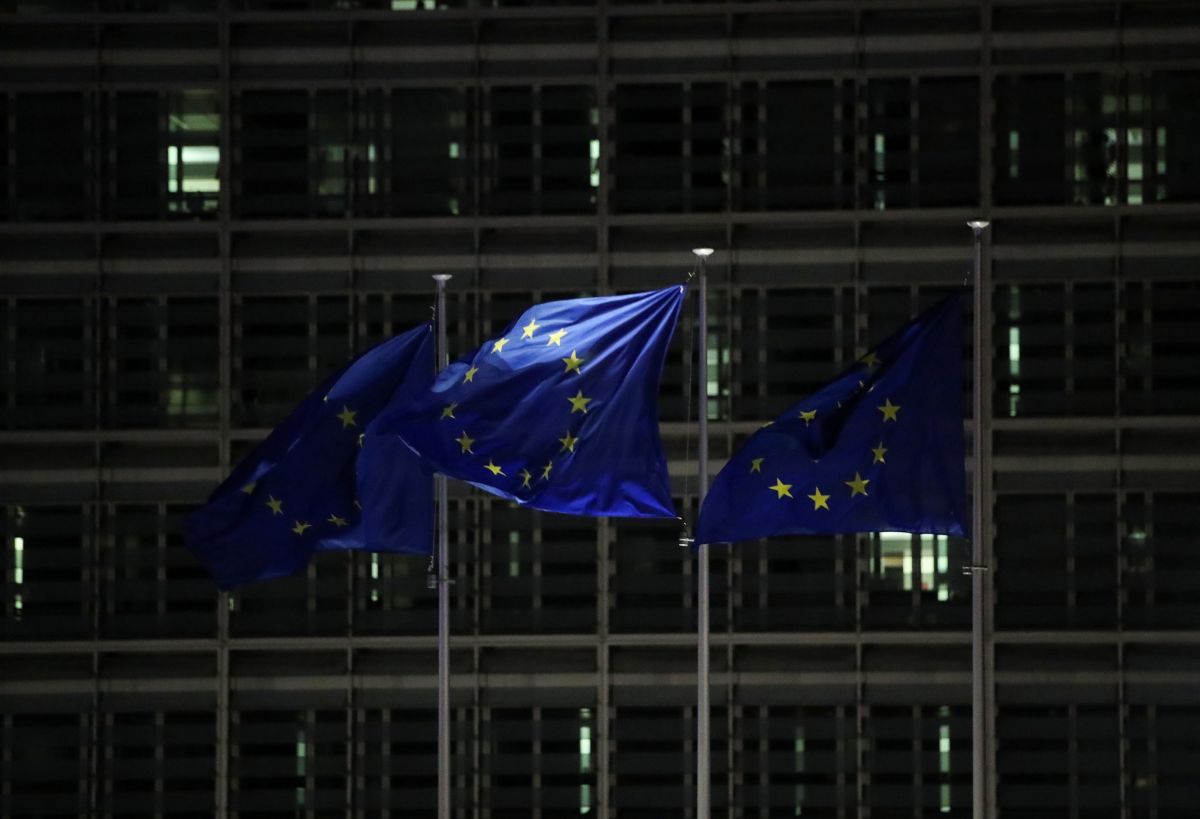More Than Just Economic Growth: Social Issues in EU Politics
As the pandemic-related economic crisis unfolded, some Member States from Southern Europe, backed by left-wing factions in the European Parliament (EP), promoted greater coordination in the realm of social policy at the EU level and more ambitious goals in combatting poverty and unemployment. However, a large group of states, mostly from Northern Europe, expressed reservations about such proposals. As a result, the majority of planned actions are declarations rather than binding commitments.
 .
.
Context
The COVID-19 pandemic and emergency measures introduced in relation to it provoked a sharp slowdown in economic activity. Despite programmes designed to safeguard jobs, the unemployment rate, which had been falling consistently since 2014, increased to 7.1% (i.e., by 0.4 percentage points) in 2020. The hardest hit were low-paid workers, often those without permanent contracts, youth, and women. Eurostat data show that in nine Member States (including Greece, Italy, Portugal, and Spain) the rate of employed citizens at risk of poverty increased.
The economic problems strengthened citizens’ conviction that reforms, such as increasing the scope for state intervention or expanding support for the most vulnerable groups, were needed. In a poll carried out by Pew Research in autumn 2020, 70% of the French and 50% of Germans agreed that the economic system needed a thorough reconstruction. In both countries, majorities support the idea to improve the support system for the poor and increase taxes on the richest. In a Eurobarometer survey, citizens who were asked what would be most helpful for the future of Europe named comparable living conditions and more solidarity among Member States (35% and 30%, respectively).
However, according to the Treaty on the Functioning of the EU, in matters related to employment and social policy, the Union only “supports and complements the activities of the Member States”, while the Commission “encourages them to cooperate and facilitates coordination of their actions”. EU law can set minimum standards related to working conditions, social protection of workers and consultation with them, but they cannot infringe on the right of Member States to define the fundamental principles of their social security systems.
Commission Proposals
In the realm of social policy, the anti-crisis initiatives of EU institutions refer to the European Pillar of Social Rights (EPSR), adopted in 2017. It is a set of 20 principles to which Member States committed to improving living and working conditions of European citizens. They include ensuring decent wages and support in case of unemployment, promoting employment, upskilling employees and broadening their influence on the management of companies, as well as enhancing the quality of healthcare and providing affordable housing. These principles do not constitute binding commitments but merely serve as a point of reference for the Union and its members.
In March, the EC presented an EPSR Action Plan that included both its legislative plans and suggestions for actions that Member States could take. The Commission announced forthcoming legislation regarding the rights of platform workers and rules governing the use of AI in workplaces. Since autumn 2020, a Directive on minimum wages that sets common standards for establishing them is being negotiated.
The Commission also came up with three goals to be achieved by 2030: an increase in the employment rate to 78% (from 73%) among people aged 20 to 64, 60% of employees taking part in training activities every year, and cutting the number of people at risk of poverty by 15 million (i.e., by 16% compared to the level of 2019). The EC suggested some modifications to the Social Scoreboard that is used in the assessments of Member States’ economic and fiscal policies (dubbed the European Semester), aiming to boost the importance of EPSR-related issues. The latter are also taken into consideration in the examination of national plans for using grants and loans from the recovery fund. However, the Commission did not state that a specific portion of the money should be spent on social policy-related projects (as was the case for climate and digitisation).
Divergences
Political parties hailing from the left and centre-left, and the Member States most affected by the economic fallout from the pandemic, came up with ideas that went further than the Commission proposals. The European Parliament (EP), in a resolution from December 2020 backed mostly by left-wing political groups, stressed that Member States should embrace goals that would be binding rather than just declarations of good intentions. More ambitious commitments were also promoted by the social-democratic Portuguese government that held the presidency of the EU Council in the first semester of 2021. Spain and Belgium called for strengthening the framework for monitoring the social situation in the Member States and making it comparable to the procedure for assessing their macroeconomic condition. Members would adopt concrete targets (on issues such as pay gaps between men and women, access to public services, homelessness, number of people leaving education) and if they failed to meet them, they would face closer scrutiny from the Commission. Both states, as well as a majority within the EP and the Italian government, suggested maintaining the SURE emergency fund to provide loans to countries to finance temporary unemployment schemes.
A more cautious approach was taken by a group of mostly northern states (Denmark, Finland, Ireland, the Netherlands, Sweden, the Baltic States, but also Austria and Bulgaria). While they broadly supported the EPSR, they also stressed that EU initiatives related to it should remain in line with the subsidiarity principle and respect for the differences between Member States. This position may be seen as a rejection of far-reaching common obligations. Similar views were advocated by business organisations.
In Central and Eastern Europe, general support for the Union’s social ambitions goes hand in hand with a preference for softer instruments—recommendations rather than concrete targets. This approach stems mainly from fears that too rigid regulations could harm the region’s competitive advantage in the single market, for instance through limiting the use of flexible work contracts or obliging governments to increase the minimum wage (in Bulgaria, for example, the latter is barely at the level of 44% of the Greek one).
The divergences between the Member States found reflection in the relatively general Porto Declaration adopted on 8 May at the European Council summit. The heads of state and government accepted the Commission’s Action Plan and its three main goals. However, just like the EPSR, it is only a political declaration, without details on the scrutiny of implementation and sanctions for lack of progress.
Conclusions and Prospects
The proponents of closer cooperation on social policy used the pandemic-related crisis to lend more impetus to their ideas. Yet, despite their efforts, the goals related to reducing poverty and improving working conditions have not reached the status of objectives connected to climate policy and digitisation. A large group of states, in particular those that enjoy a more stable economic condition, have opted for looser cooperation because it gives them more room for shaping their own policies.
For Southern European states, the pleas for more resolute common action on social problems is a way not only to attract more EU funds but also to provoke a permanent modification of the Stability and Growth Pact rules. They stress that the rules force reductions in public spending in a way that is excessive and inhibits the post-pandemic economic recovery. Northern states fear they will have to carry the burden of supporting southern states plagued by considerable public debt and high unemployment. They are wary of keeping the emergency mechanisms created recently, believing that an EU unemployment insurance mechanism, for instance, could dampen the reformist drive in the South.
Even though the EU support is increasingly being re-directed towards the South, the idea to protect the Community’s cohesion remains important for Poland. EU funds could become a significant source of aid for sectors and regions where adapting to the challenges of the twin transition will be demanding and costly. Latest data published by Poland’s Statistics Office show that rising inequalities could become another pressing issue.


